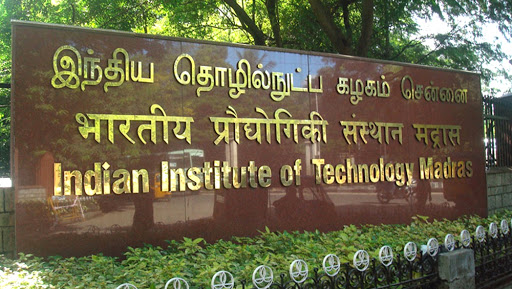
New Delhi, June 27: Researchers at the Indian Institute of Technology (IIT) Madras have developed algorithms for drones to help study how fire behaves in space stations, shuttles and satellites. According to the team, a multirotor microgravity platform can also simulate reduced-gravity environments similar to Moon and Mars, thereby recreating those conditions on Earth for experiments.
The team claims that at present, generating microgravity (gravity experienced is close to zero) is possible only through space stations, satellites, space shuttles, sounding rockets, and drop towers, almost all of which are beyond the reach of most educational institutions in India.
“Another option is to use ‘free-fall’ flights on Earth to create microgravity. The free fall of sounding rockets and free fall of payloads from high altitude balloons and drop towers can also enable microgravity,” Kedarisetty Siddhardha, research scholar, Department of Aerospace Engineering, IIT Madras told PTI. Scientists Use NASA Satellite Data To Track Ocean Microplastics From Space.
“These microgravity platforms provide stable and high-quality microgravity. However, it takes a few months to years to gain access to any of the existing microgravity platforms. Moreover, the cost to access these platforms’ services is not affordable by many educational and research institutions,” he added.
The team has developed an algorithm that can precisely control multirotor Unmanned Aerial Vehicles (UAVs) such as quadrotors or drones. The team has published this research in reputed peer-reviewed international journals, including Aerospace Systems, Aerospace Science and Technology, and Microgravity Science and Technology.
“These algorithms and techniques for multirotor UAV control could accurately maintain its acceleration. Although multirotor UAVs currently do not have high payload capacities, they are readily available at a low cost, making them accessible to all. We have conducted flight tests using a quadrotor and a hexrotor that we developed and found that those flights attained stable and high-quality microgravity levels,” he said.
“The research team showed that existing quadrotors could be turned into microgravity platforms via minor design modifications and appropriate control, estimation, and automation algorithms. Furthermore, the methods and algorithms developed by us for turning multirotors into microgravity platforms are generic. So, they can be replicated easily to create multirotor microgravity platforms with high payload capacities,” Siddhardha added.
The two multirotors that the team built and flew are the first UAVs to conduct on board experiments in microgravity. Earlier, efforts by other researchers to make UAVs as microgravity platforms did not see much success as those platforms could not attain gravity levels close to zero.
“While most conventional microgravity platforms can simulate only microgravity, a multirotor microgravity platform can also simulate reduced-gravity environments like that on the Moon and Mars.
“All it takes is a change in one parameter in the software that Siddhardha embeds in his multirotor that autonomously performs the manoeuvres required to achieve the level of gravity needed,” said Joel George Manathara, Assistant Professor, Department of Aerospace Engineering, IIT Madras. NASA’s Ingenuity Helicopter Completes 8th Flight on Mars.
The team has carried out experiments on board his multirotor microgravity platforms to observe capillary action as well as the change in the shape of the liquid meniscus in microgravity.
“These experiments undoubtedly prove that multirotors can be turned into platforms on which microgravity experiments can be carried out. Nowadays, almost every educational institution has a robotics lab or a flying club with multirotors. Thus, this research opens up the possibility of conducting experiments in microgravity at every university in India,” Siddhardha said.
Leave a Reply